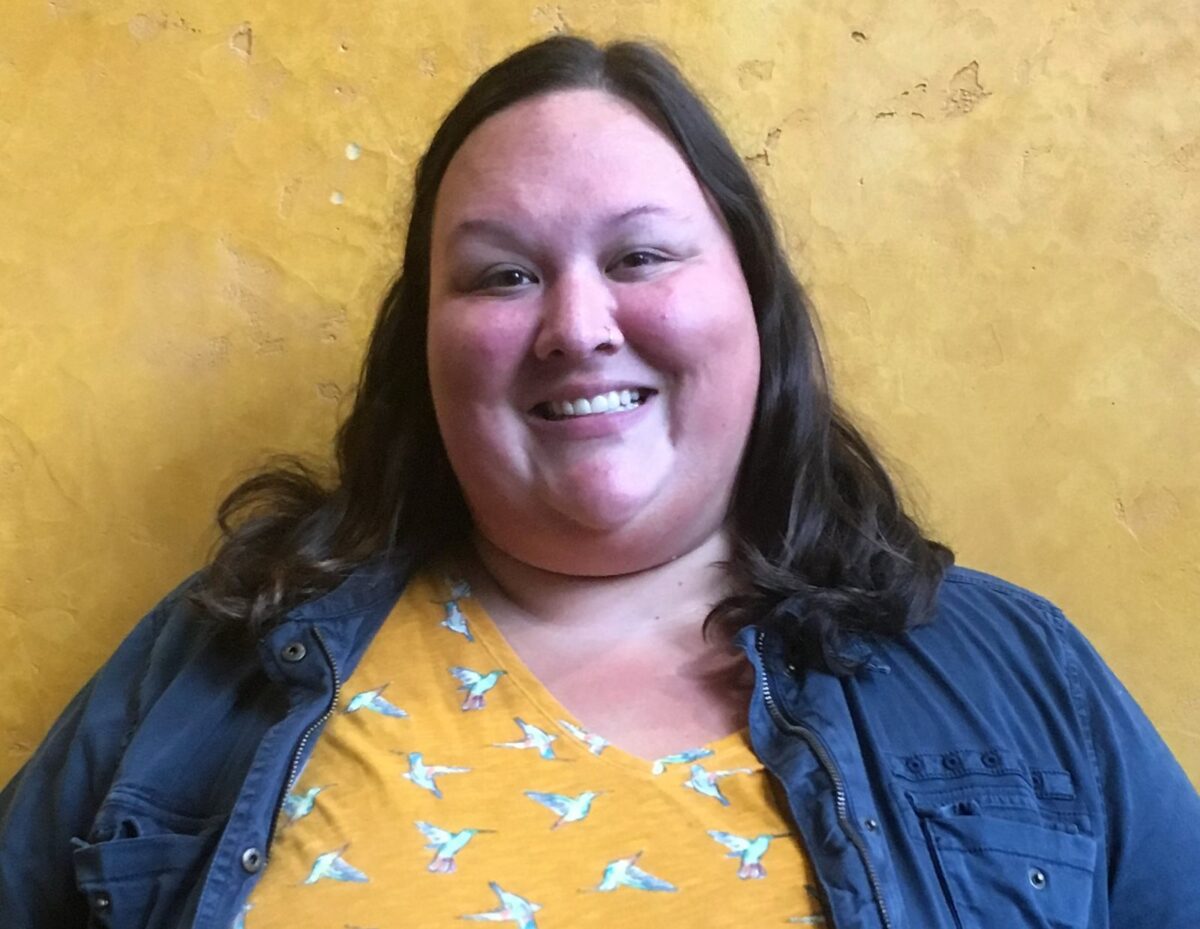As a member of the Tulalip Tribes, Mary Jane Topash grew up with a deep connection to the water and the culture of her homeland. The Tulalip reservation sits northwest of Everett, Washington, along the Puget Sound — and the beach was a point of fascination for her growing up. She loved learning about the inner workings of the ocean and the circle of life she observed among its inhabitants, in particular traditional stories surrounding orcas.
By middle school, Topash was certain she wanted to be a marine biologist.
“I’ve lived on the reservation and been around the sea almost all my life,” said Topash (Cultural Studies, ’17). “That really influenced my education, my career and pretty much all aspects of what I do. Whether I meant for it to happen or not, it helped guide me, and I wanted to find a career path that connected me to that.”
Topash began her education at the University of Washington, looking to fulfill her marine biologist dream when she made an unexpected discovery: The math and science of it all, as it turned out, weren’t really her passion. It was the culture — and the way people relate to the land and the water and each other — that truly held her heart.
Now, as the assistant director of cultural education initiatives at the Burke Museum of Natural History and Culture, Topash says her own cultural background is an integral part of her work.
Learning to think critically
Two years into her Oceanography studies at the UW, Topash changed gears when she realized she preferred classes with a lot of reading and writing, such as anthropology. In her last year as an undergraduate, she took a class on Indigenous representation in museums that sparked a passion for the subject.
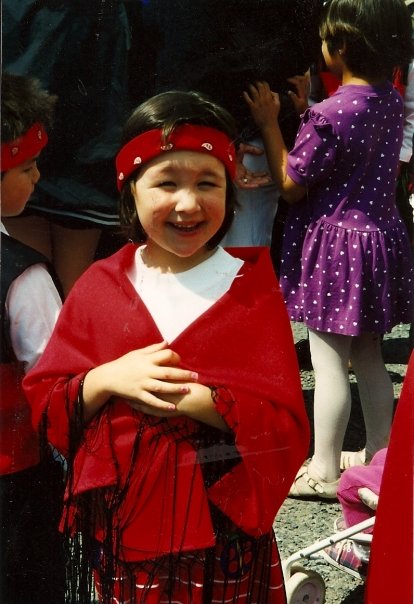
Topash graduated in 2011 with a bachelor’s in Anthropology and a minor in American Indian Studies. The timing, she said, couldn’t have been more serendipitous, as just two months later, Tulalip’s first tribal museum opened.
She began working as a museum assistant at the Hibulb Cultural Center and Natural History Preserve when it first opened and a year later became a group tours specialist. Then a few years after that, craving a challenge, she decided to find a graduate program that would help her take the next step in her career.
The master’s in Cultural Studies at the University of Washington Bothell was the perfect fit, she said, offering her the chance to continue working at Hibulb while taking classes at night.
“In grad school, I really learned how to challenge, critique and question things that I never would have before,” she said. “Cultural Studies really untangles everything and makes you second guess everything you thought you knew about the world. It gave me the tool set to think critically and examine things at a deeper level.”
“In grad school, I really learned how to challenge, critique and question things that I never would have before.”
Mary Jane Topash, Cultural Studies ’17
Confronting stereotypes
Throughout her graduate program, Topash’s identity as a Tulalip tribal member and her work at Hibulb informed a lot of how she engaged with the curriculum. For her capstone project, she brought the two worlds together and created a temporary exhibit on Native American stereotypes that was displayed at the center where she worked.
“My capstone was inspired by a lot of my boots-on-the-ground work with the public in the museum world and fielding all these questions that people asked me,” she said. “I realized there was a lack of knowledge and accuracy and local context — not just here but also in the entire country around native representation.”
Under the guidance of her adviser, Dr. Yolanda Padilla, associate professor in the School of Interdisciplinary Arts & Sciences, Topash analyzed negative stereotypes specific to the Tulalip Tribes that had historically been promoted by museums.
“I was deeply impressed by how clear she was about the relationship between her social justice commitments and her intellectual pursuits,” Padilla said. “This project became a powerful foundation for the work she does now for the Burke Museum. She has a deep understanding of the long history of harm that has resulted from how museums have misrepresented Indigenous people, and she puts that knowledge to use in the educational programming she develops.”
Topash completed her master’s degree in 2017 and continued working at Hibulb. During that time, the Burke Museum of Natural History and Culture, which is located at the UW in Seattle, underwent a massive reconstruction. Topash started her role as the assistant director of cultural education initiatives when its new building opened in 2019.
In her current role, Topash is able to stay connected to both her love of science and culture.
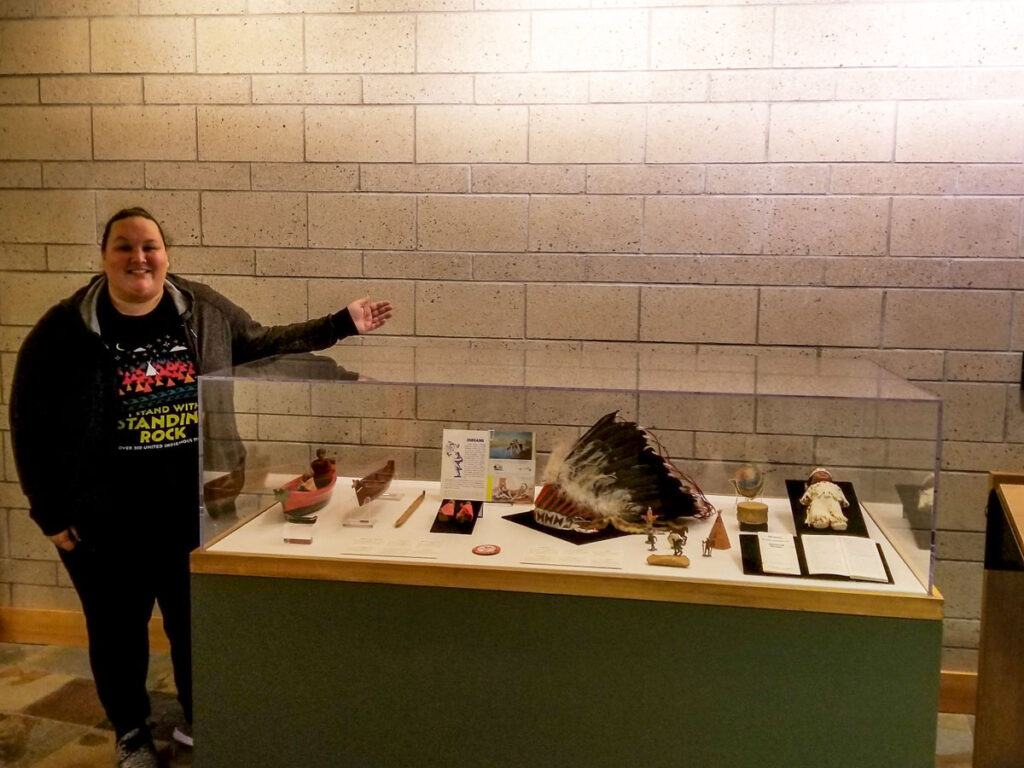
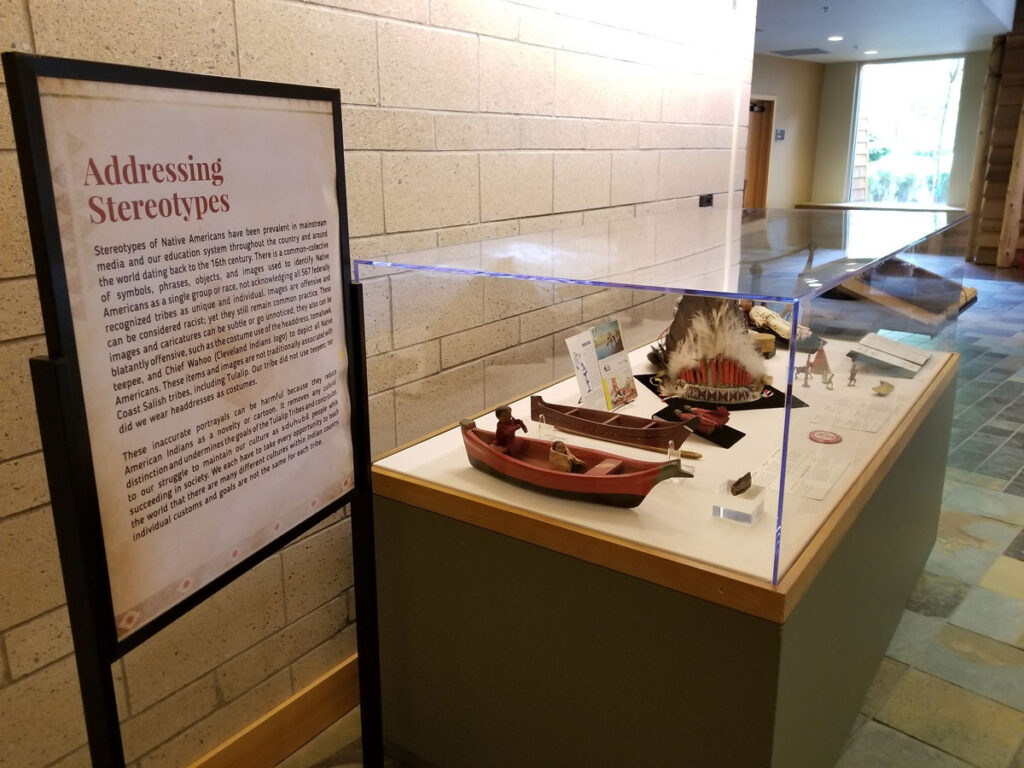
Educating the public
“I always say that the Burke has my brain and that Hibulb has my heart,” she said. “I’ve always liked science and learning about how things work, and I get to work with so many different parts of the museum. I’m kind of your go-to gal for anything that touches on culture, especially anything tribal, and my expertise is in the Coast Salish.”
While much of her work involves lending her expertise throughout the museum, she also does a lot of outreach in the community. From meeting with tribal leaders to speaking in classrooms and libraries, Topash travels the state to both inform her work and educate the public.
“There’s a lot of unlearning that the general public needs to do, and what drives me in my work is just making sure people know the most accurate history because it’s been wrong for so long,” she said.
Among the schools in her educational tour lineup is her graduate program alma mater. Topash returns to UW Bothell at least once a year to guest lecture in “Place and Displacement in the Americas,” which is co-taught each fall by Padilla and Dr. Julie Shayne, IAS teaching professor. She usually comes around Indigenous Peoples’ Day and speaks to the local tribal history and cultural loss.
“Her visit is always one of the highlights of the quarter,” Padilla said. “She shows a great deal of patience in answering students’ questions and makes them feel comfortable with her at the same time that she challenges them to continue to learn more about contemporary and historical issues related to local tribes.
“The work she does to empower marginalized communities and to ‘decolonize’ knowledge is very meaningful, and I’m happy I get to see her in action each year in class.”
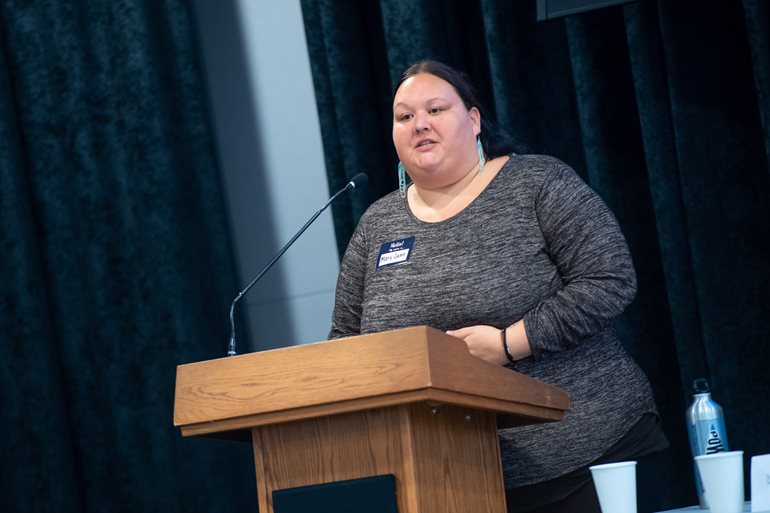
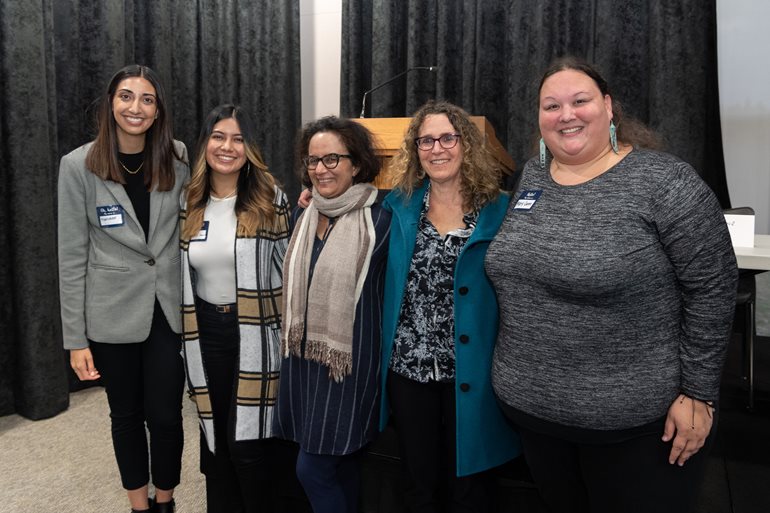
Inspiring today’s students
Her time at UW Bothell was rewarding not only for the education she received but also the connections she made — and continues to make, Topash said, adding that she still remains in touch with her former professors and classmates. In 2023, for example, she spoke on a Social Justice Career Panel on campus.
“I suggested we bring her as one of the panelists to talk to the students about what they could do with social justice degrees, hoping students would emulate her path and success,” Shayne said. “She is a role model and inspiration for other students, especially students from marginalized communities, to follow their passions. She studied what she wanted to learn about and has turned it into a fascinating and meaningful career.”
When asked what advice she has for students today, Topash said: “Have confidence in your own experiences and hold true to yourself because that is just as important as what you learn throughout school. Your personal life has a lot of weight, and I didn’t realize that at first, so don’t discredit your experiences because it’s all relevant.”

